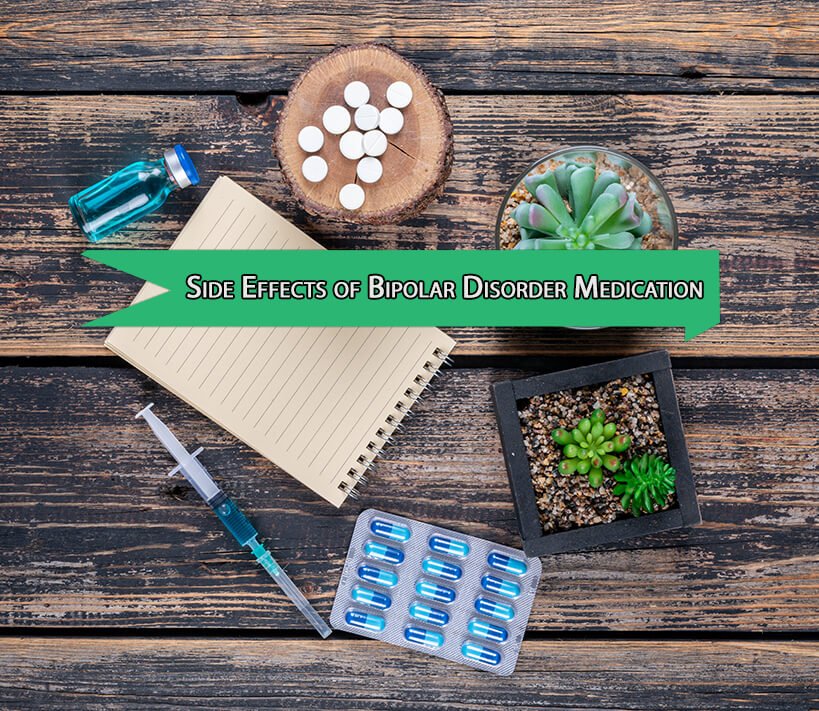Bipolar disorder can be an overwhelming condition, marked by extreme mood swings that can be difficult to navigate without medication. While medications help stabilize mood swings, they often come with their own set of side effects. How can you balance managing bipolar disorder and minimizing its side effects? This blog will guide you through understanding, coping with, and managing the side effects of bipolar disorder medication.
Managing bipolar disorder involves a combination of therapeutic techniques, lifestyle changes, and medication. Medications such as mood stabilizers, antipsychotics, or antidepressants are prescribed to help control the highs and lows associated with the disorder. However, these meditations can also have side effects that may impact your daily life. By understanding the psychoaura surrounding the disorder and its treatments, you can better navigate the challenges of managing both the condition and the side effects of medication.
Bipolar Disorder in Urdu
یہ ایک نفسیاتی بیماری ہے جس میں مریض کے مزاج میں انتہاؤں تک اتار چڑھاؤ آتا ہے، یعنی کبھی بہت خوش (mania) اور کبھی بہت اداس (depression) محسوس کرتا ہے۔
Ways to Manage Side Effects of Bipolar Disorder Medication
Here how you can manage those side effects while still reaping the benefits of your treatment:
1. Recognize the Common Side effects
The side effects of bipolar disorder medication can vary and depend on the type of drug, but some common side effects include weight gain, drowsiness, dry mouth, and gastrointestinal issues. Understanding these effects can help you better prepare for potential challenges, manage your symptoms more effectively, and seek adjustments with your healthcare provider if necessary. This proactive approach can improve your ability to balance treatment and daily life.
2. Monitor Your Symptoms
It is essential to track any side effects you experience. You should maintain a detailed record of how your body has responded to the medication, including any mood or physical symptom changes. This record is helpful for your caregiver, as it assists in adjusting your medication doses and trying different medications that might work better for you. Keeping this log ensures more personalized treatment, improves medication effectiveness, and can also help identify the most suitable approach for managing bipolar disorder.
3. Adhere to Meditation Schedules
Consistency is key when it comes to bipolar disorder medication. Taking your medication at the same time every day helps avoid mood and minimize side effects like drowsiness, nausea, and others. Never skip your medication, and always follow the prescribed regimen as directed. If you miss a dose, consult your healthcare provider on how to proceed. Sticking to your medication schedule not only supports better mood stability but also ensures long-term effectiveness in managing bipolar disorder.
4. Communicate with Your Healthcare Provider
If side effects become too overwhelming or persistent, it is crucial to communicate openly with your healthcare provider. They can help adjust your treatment plan or explore alternative medications. Adjustments could include switching to a different class of medication or adding a complementary drug to counteract side effects.
5. Lifestyle Modifications
Incorporating a healthy lifestyle into daily life can help mitigate the side effects of bipolar disorder medication. A balanced diet aids in managing weight, while regular exercise helps improve mood, boosts energy, and reduces fatigue. Also, practicing good sleep hygiene, staying hydrated, and managing stress through mindfulness or relaxation techniques can further enhance the effectiveness of treatment. These lifestyle changes not only support overall well-being but also help you better manage the challenges of living with bipolar disorder, contributing to more stable and positive mental health.
6. Addressing Weight Gain
A common side effect of bipolar medication is weight gain. This can be frustrating and may lead to further complications such as diabetes or high cholesterol. A balanced diet that includes vegetables, lean protein, whole grains, and regular exercise is essential to manage this. Consulting with a nutritionist for a personalized plan can help you stay on track with your health goals, ensuring that the medication side effects are minimized while promoting overall wellness. Maintaining this balance supports both physical and mental well-being.
7. Minimize Alcohol and Drug Use
Substance use can complicate bipolar disorder and medication management. Alcohol, in particular, can interfere with the effectiveness of mood stabilizers and other psychiatric medications, heightening the risk of side effects. Limiting alcohol and avoiding recreational drugs can improve the outcomes of your treatment.
8. Patient Education
It is crucial to learn about your medications and how they work on your body. When you understand how the medication works, you can make informed decisions regarding your health. Educating yourself about potential side effects and discussing any concerns with your doctor is essential. Being proactive helps you manage your treatment more effectively, allowing you to adjust your approach when needed. Open communication with your healthcare provider ensures that your treatment plan is tailored to your needs, improving both your physical and mental well-being.
9. Support Groups
Joining a support group for people with bipolar disorder can help you gain insights from others who are experiencing the same challenges. Hearing from people who understand your struggles with medication side effects can offer support and new coping strategies. These groups provide a sense of community, reduce feelings of isolation, and allow you to share experiences that may help others. Being part of a support network can motivate you to stay consistent with your treatment, learn new techniques, and gain emotional strength from shared experiences.
Conclusion
Managing bipolar disorder and its medication side effects is an ongoing challenge, but with the right approach, it is possible to find balance and live a fulfilling life. Recognizing side effects, communicating with your healthcare provider, and incorporating lifestyle changes help minimize side effects and improve overall well-being. Every individuals journey is unique, so staying informed, proactive, and connected with support groups is essential. With the right tools, resources, and mindset, we can navigate the ups and downs of bipolar disorder while maintaining health and happiness.




